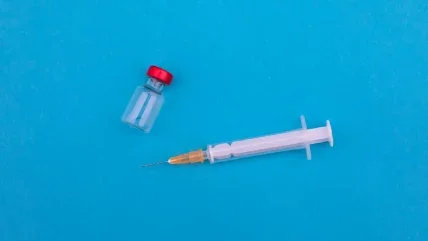
Israeli biopharmaceutical firm Scinai Immunotherapeutics has signed a binding option agreement for the acquisition of Italian biotechnology company Pincell.
The acquisition includes Pincell’s lead candidate, PC111, a fully human monoclonal antibody targeting rare and severe skin diseases, including pemphigus.
Unlike other biologics, PC111 aims to block the activation of apoptosis of skin cells (keratinocytes), without suppressing the immune system.
Under the option agreement, Scinai obtains the right to acquire Pincell’s shares by the end of this year, contingent on meeting closing conditions and receiving approvals in Italy.
Pincell’s shareholders will receive development milestone payments and low single-digit royalties from future PC111 sales.
In addition, Pincell’s management will join Scinai’s new Polish subsidiary, and founder Prof. Carlo Pincelli will join Scinai’s Scientific Advisory Board.
In anticipation of an agreement, Scinai’s Polish subsidiary applied for a €12m grant under the European Funds for a Modern Economy (FENG) programme in Poland.
Pincell exclusively licensed PC111 to the subsidiary to facilitate the grant application.
A decision on the grant is expected between mid-July and early August of this year, pending approvals from the Italian regulatory authorities.
Scinai CEO Amir Reichman said: “The grant we have applied for is under an EU program well suited to our development plans, based on advice of a consultant in Poland who has helped prepare and process a number of other successful applications.
“While the application only covers the next stage of development, under current regulations we will have the opportunity to apply for successive grants in similar amounts if we achieve the target development milestones outlined in the initial application.
“Combined with the potential for accelerated approval given the severity and lack of effective alternative treatments, we find the opportunity particularly appealing and a very good fit with our own I&I focus.”
Pincell has developed a proprietary FasL humanised mouse model to study the Fas/FasL pathway in skin blistering disorders.
It has conducted extensive in-vitro, ex-vivo, and in-vivo experiments using PC111, validating its potential to block blister formation without steroids in pemphigus models.
The studies indicate that PC111 may be a novel targeted therapy for pemphigus at the clinical level.
The monoclonal antibody also shows promise in treating Stevens-Johnson Syndrome (SJS) and Toxic Epidermal Necrolysis (TEN).
In vivo models indicate that PC111 can ameliorate ocular conjunctivitis and oedema, early features of SJS and TEN, and potentially inhibit disease progression.
Pincell chairman and CEO Antonino Amato said: “We are very pleased to join forces with Scinai, a company with a great expertise in R&D of inflammatory skin diseases, as well as in the development and manufacturing of biologics.
“Their scientific knowledge, international reach and access to capital represent the ideal match to our development plans and needs.
“I am sure that this partnership will prove effective in the advancement of PC111 in the fight against Pemphigus and SJS/TEN, as well as, potentially, against other underserved dermatological and non-dermatological diseases involving the FasL/Fas receptor pathway in their pathomechanisms.”






